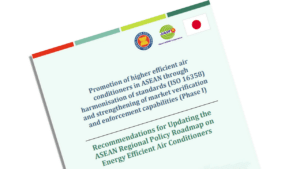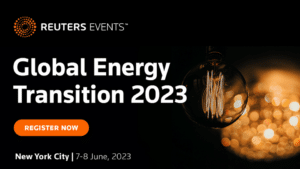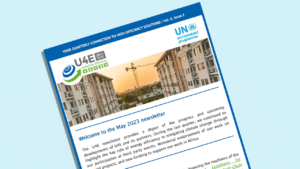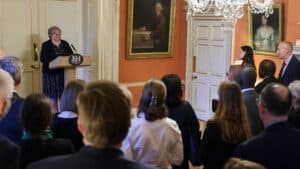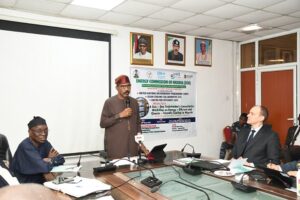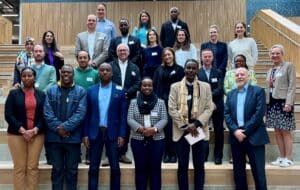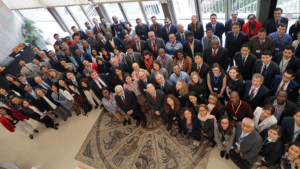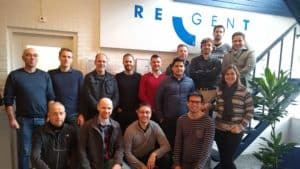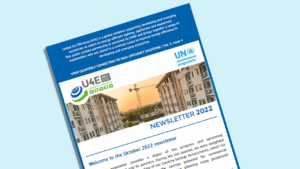The new Clean Cooling Collaborative-funded, ASEAN Cool Initiative aims to accelerate the implementation of the ASEAN Regional Policy Roadmap for Energy Efficient Room Air Conditioners by providing technical assistance and capacity building on Minimum Energy Performance Standards (MEPS) and labels in the region. It will be implemented by the ASEAN Centre for Energy (ACE) across the region, with support from United Nations Environment Programme (UNEP) – United for Efficiency (U4E), Lawrence ...Read More
U4E Model Regulation Guidelines Support Development of New Mandatory Energy Efficiency Standards for Lighting in South Africa
In May 2023, the South African Department of Trade and Industry and Competition officially announced new compulsory Minimum Energy Performance Standards (MEPS) for lighting in South Africa, which will effectively ban all but energy-efficient light emitting diode (LED) lamps for general service lighting. The development of these MEPS was led by the Department of Mineral Resources and Energy and approved by the Department of Technology, Industry and Competition, with the proposed standards open ...Read More
Workshop at Global Energy Transition 2023 Will Explore the Role of Standards in Unlocking Energy Efficiency Investment
In New York City on 8 June 2023, a workshop facilitated by UNEP’s United for Efficiency and Copenhagen Climate Centre will explore the role of standards in unlocking energy efficiency investment and how the private sector can learn and benefit from these types of investments. The workshop is part of the Connect Agenda at Global Energy Transition 2023 – an event bringing together energy, industrial, and government leaders to redefine intersectoral Net Zero discourse and confront the most ...Read More
May 2023 issue of the U4E newsletter now available
The U4E newsletter provides readers with quarterly updates on the latest U4E projects, resources and tools. The May 2023 issue is now available. This issue includes information on: A UK study tour and additional funding facilitating the progress of the Africa Centre of Excellence for Sustainable Cooling and Cold-chain towards full operationalisation Launch of a decarbonization roadmap, Copper–The Pathway to Net Zero, by one of U4E’s founding partners, the International Copper ...Read More
Funding to Help Developing Countries Phase Out Use of Damaging Climate Gases Announced
Developing countries will receive £4 million to drive down the emissions of harmful hydrofluorocarbons generated by outdated air conditioning units, cooling refrigeration and cold supply chains, the UK government announced on 20 April 2023 ahead of a reception in No.10 Downing Street for climate scientists serving on the Independent Assessment Panels for the UN Montreal Protocol, along with members of the United Nations Environment Programme United for Efficiency (UNEP U4E) African Centre of ...Read More
Inauguration of National Technical Committee Drives Progress Towards Energy-Efficient and Climate-Friendly Cooling in Nigeria
The importance of energy efficiency as one of the most cost-effective means of providing energy security, increasing economic productivity, reducing air pollution and mitigating greenhouse gas emissions (GHG) was recognised by Nigeria’s Minister of Science, Technology and Innovation, Dr Adeleke Olonmimbe Mamora, when he inaugurated the National Technical Committee for the Scaling Up Energy-Efficient and Climate-Friendly Cooling in Nigeria’s NDC Revision project at a Stakeholder Consultation ...Read More
ACES Stakeholders Convene in the UK for Strategic Discussions
This month key stakeholders in the Africa Centre of Excellence for Sustainable Cooling and Cold-Chain (ACES) convened in the UK to finalize immediate actions to operationalize the centre, exchange insights, and build strategic networks with government officials, industry, and academia. ACES is based in Kigali, Rwanda, and its aim is to accelerate the deployment of sustainable cold-chain solutions in Africa to improve livelihoods, health, food and nutritional security. This will be achieved ...Read More
Training future generations of energy efficiency professionals
The IEA Energy Efficiency 2022 report released in November 2022 highlighted that the largest future energy efficiency opportunities will be found in emerging and developing economies that are particularly exposed to the challenges of surging energy costs, supply disruptions and looming energy shortages. They account for around 60% of global final energy demand in 2022, and this is expected to grow almost 20% by 2030 under current policy scenarios. They therefore have a critical role to play in ...Read More
Brazilian Stakeholders Benefit from the First Ever U4E Commercial Refrigeration Study Tour
Brazil takes important fast climate action steps forward with new nationwide energy efficient, higher performance, commercial refrigerators planned for all sectors. In January 2023, the United Nations Environment Programme (UNEP) United for Efficiency (U4E) initiative ran its first ever commercial refrigeration technical study tour, in the framework of the GCF Readiness Programme-funded project, Leapfrogging to Energy-Efficient and Climate Friendly Commercial Refrigerating Appliances in Brazil, ...Read More
January 2023 issue of the U4E newsletter now available
The U4E newsletter provides readers with quarterly updates on the latest U4E projects, resources and tools. The January 2023 issue is now available. This issue includes information on: The use of U4E’s model regulation guidelines to specify threshold levels for accessing support and as a benchmark for a country’s ambition New collaborations for the Africa Centre of Excellence for Sustainable Cooling and Cold-chain High profile U4E events in parallel with MOP 34 and OLADE Energy ...Read More
- « Previous Page
- 1
- 2
- 3
- 4
- 5
- 6
- …
- 23
- Next Page »
